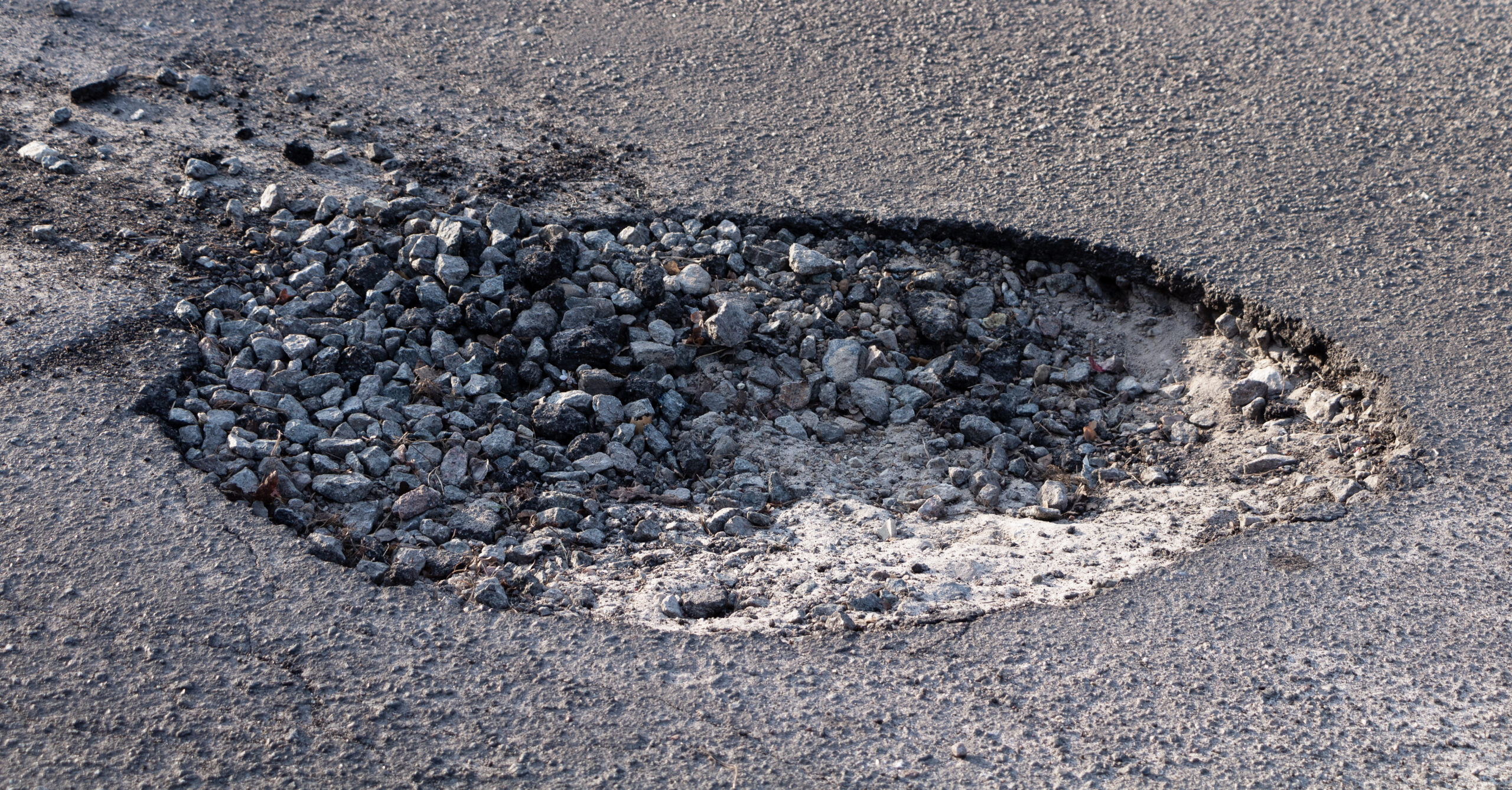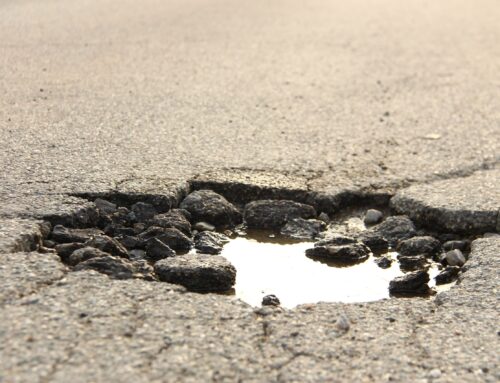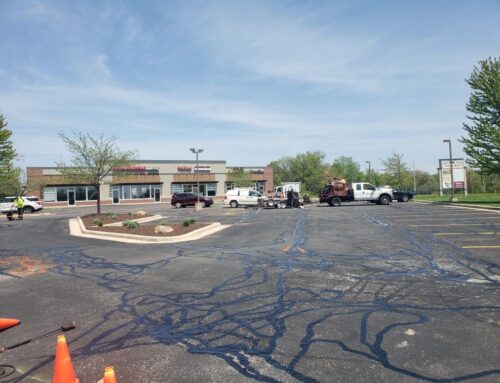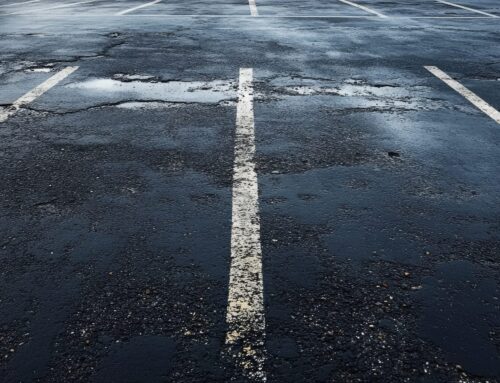Asphalt is a durable and long lasting material used for driveways and parking lots. If properly installed and maintained, an asphalt surface will last up to 30 years. After installation, it is important to keep up with routine maintenance like sealcoating every 3-5 years and filling cracks and potholes whenever possible. Following these steps will ensure you get the most life out of your asphalt, but eventually it will be time to remove, recycle, and replace your pavement. Here’s some signs that it’s time to replace your asphalt instead of repairing:
- Excessive Cracks. Cracks that have been left without repair for an extended period can allow oil, dirt, gas, and salt to get into the foundation of your pavement making them impossible to fill. When your pavement gets to this point it is time to replace the whole surface.
- Deep Potholes. Like cracks, small potholes can be easily managed by filling them but they are often ignored. Potholes can be extremely dangerous to vehicles and pedestrians. A large pothole can cause major mechanical damages when an unsuspecting driver isn’t able to avoid it. It’s time to replace your driveway when minor potholes are no longer easy to manage and keep reappearing despite attempts to repair them.
- Poor Drainage. Over time the foundation of your pavement begins to wear down causing sloping and an uneven surface. This will cause water to puddle leading to corrosion and more potholes. After the asphalt is completely replaced, an experienced asphalt contractor will be able to implement different measures to prevent drainage issues in the future.
- Age. As we mentioned, an asphalt surface should have a lifespan of up to 30 years. If you know your driveway or parking lot is getting close or has surpassed that timeframe, it is no longer worth trying to repair.
If you’re unsure whether or not you should repair or replace your asphalt, contact Amored Asphalt today for a free evaluation and quote from our honest professionals!




